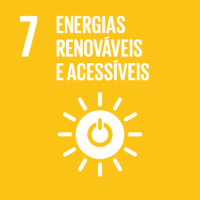Ciência_Iscte
Publicações
Descrição Detalhada da Publicação
Título Revista/Livro/Outro
Thinking lab on sustainableg growth – Dialogue on Europe Policy Brief
Ano (publicação definitiva)
2018
Língua
Inglês
País
Alemanha
Mais Informação
--
Web of Science®
Esta publicação não está indexada na Web of Science®
Scopus
Esta publicação não está indexada na Scopus
Google Scholar
Esta publicação não está indexada no Overton
Abstract/Resumo
This paper presents proposals by a group of young civil society activists and professionals from six European countries (France, Germany, Greece, Italy, Portugal and Spain) who are passionate about the future of the European Union and about promoting a sustainable, inclu- sive and climate-friendly growth path for their societies.
Growth is usually understood as merely related to increasing the Gross Domestic Product (GDP) and competitiveness. This does not, however, always deliver bene ts to all societal groups, nor does it address their needs and visions for a prosperous and meaningful life. Our Thinking Lab therefore focused on sustainable well-being, rather than growth, as the overarching goal of its proposals. Sustainable well-being prioritises environmental and social bene ts as well as good governance. Fairness across generations is key, which includes the protec- tion of our natural heritage for future generations. This implies, rst and foremost, the responsible use of natural resources (mainly through a circular economy) as well as the protection of what is considered a ‘safe’ climate for both human beings and the preservation of biodiversity (mainly through the decarbonisation of our economy by the middle of the 21st century).
“When measuring economic prosperity, social and environmental externalities have to be taken into account.”
Sustainable well-being is also understood in an eco- nomic sense, i.e. when people have the economic re- sources to meet all their basic needs (housing, eating, clothing, heating, basic mobility) and to ful l some of the objectives which they have de ned based on their personal values, interests and desires. When measuring economic prosperity – preferably on the basis of Gross National Revenue (including GNR adjusted by purchas- ing power parity) or non-forced purchasing power (ca- pacity to acquire non-basic goods and services), rather than GDP – social and environmental externalities have to be taken into account.
There are also nancial aspects to sustainable well-being: public and private nancial ows need to be diverted away from polluting towards ‘greener’ projects (renewables, energy e ciency, low-carbon infrastruc- ture etc.). Environmental, social and governance (ESG) criteria should be integrated into nancial transactions for the lasting bene t of both clients and society at large. Social aspects are just as important: We want to achieve the greatest possible level of social inclusion and equality, not least by providing opportunities for upward social mobility, such as through equal access to free, quality education for all. Last but not least, there is a political dimension to sustainable well-be- ing: on the one hand, democratic principles, including transparency and accountability, need to be adhered to; on the other hand, citizens have to be able to actively participate in political processes, especially at the local level – even in highly centralised European countries.
Agradecimentos/Acknowledgements
--
Palavras-chave
Registos de financiamentos
| Referência de financiamento | Entidade Financiadora |
|---|---|
| SFRH/BPD/94495/2013 | Fundação para a Ciência e a Tecnologia |
| UID/CPO/03122/2013 | Fundação para a Ciência e a Tecnologia |
Contribuições para os Objetivos do Desenvolvimento Sustentável das Nações Unidas
Com o objetivo de aumentar a investigação direcionada para o cumprimento dos Objetivos do Desenvolvimento Sustentável para 2030 das Nações Unidas, é disponibilizada no Ciência_Iscte a possibilidade de associação, quando aplicável, dos artigos científicos aos Objetivos do Desenvolvimento Sustentável. Estes são os Objetivos do Desenvolvimento Sustentável identificados pelo(s) autor(es) para esta publicação. Para uma informação detalhada dos Objetivos do Desenvolvimento Sustentável, clique aqui.

 English
English




